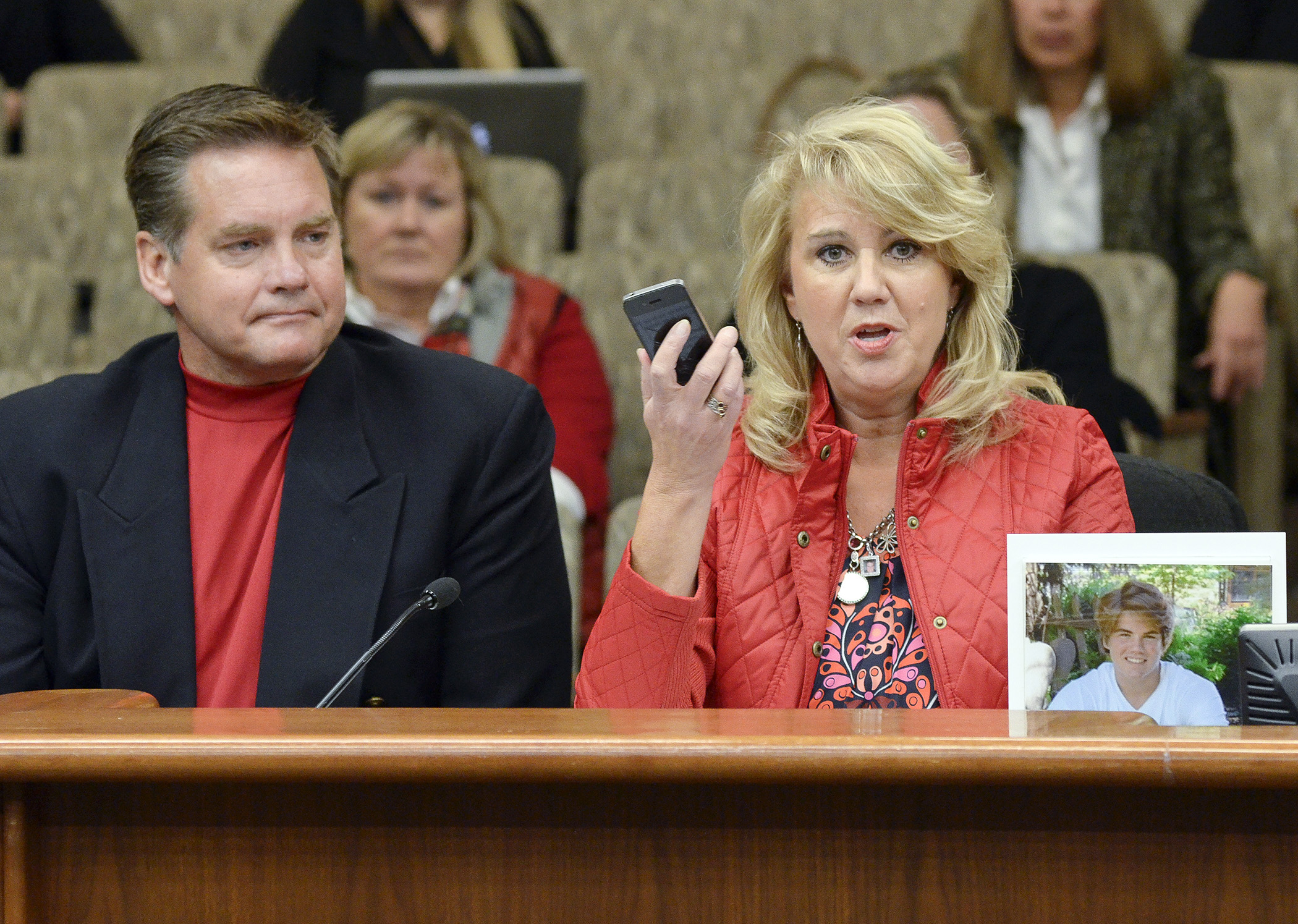Digital age blind spot: Who owns online accounts after death?

Who gets access to your “digital assets” – from the contents of your smartphone to lists of Facebook friends and Flickr photo albums – after you die?
Drafted by the Uniform Law Commission and sponsored by Rep. Debra Hilstrom (DFL-Brooklyn Center), HF200 seeks to put in Minnesota law, for the first time, an answer to that increasingly common question.
The bill was laid over Tuesday by the House Civil Law and Data Practices Committee for possible omnibus bill inclusion.
The move followed testimony by Kristi and Bill Anderson, who were denied access to the contents of the cellphone belonging to their 19-year-old son, Jake, after the University of Minnesota freshman was found frozen to death on a river bank in December 2013. His death was subsequently ruled accidental.
“Our cellphones and our social media have become our lifelines,” Kristi Anderson told the panel. “These house those photo albums, ledgers, online [banking information], filing cabinets, calendars, and all of your music library. The real question is, whose data is that anyway?”
Under the terms of HF200, a designated fiduciary would be able to gain access to the digital account records of deceased or incapacitated persons, in most cases. Jim Lamm, an estate planning and tax attorney, testified that the bill would not usurp the privacy rights of account owners or the claims of third-party copyright holders.
“It gives account holders the choice of whether your digital assets are preserved, distributed to your heirs, or destroyed,” Lamm said. The bill would also provide immunity to digital service providers who comply with requests from court-appointed estate representatives, conservators of the vulnerable, or other authorized fiduciary agents.
The so-called “Uniform Fiduciary Access to Digital Assets Act,” is based on model legislation adopted by the National Conference of Commissioners on Uniform State Laws last fall. Gene Hennig, a commissioner of the Uniform Law Commission, told the committee that parallel state legislation has already been introduced in “almost half” of U.S. states.
Related Articles
Search Session Daily
Advanced Search OptionsPriority Dailies
Ways and Means Committee OKs proposed $512 million supplemental budget on party-line vote
By Mike Cook Meeting more needs or fiscal irresponsibility is one way to sum up the differences among the two parties on a supplemental spending package a year after a $72 billion state budg...
Meeting more needs or fiscal irresponsibility is one way to sum up the differences among the two parties on a supplemental spending package a year after a $72 billion state budg...
Minnesota’s projected budget surplus balloons to $3.7 billion, but fiscal pressure still looms
By Rob Hubbard Just as Minnesota has experienced a warmer winter than usual, so has the state’s budget outlook warmed over the past few months.
On Thursday, Minnesota Management and Budget...
Just as Minnesota has experienced a warmer winter than usual, so has the state’s budget outlook warmed over the past few months.
On Thursday, Minnesota Management and Budget...